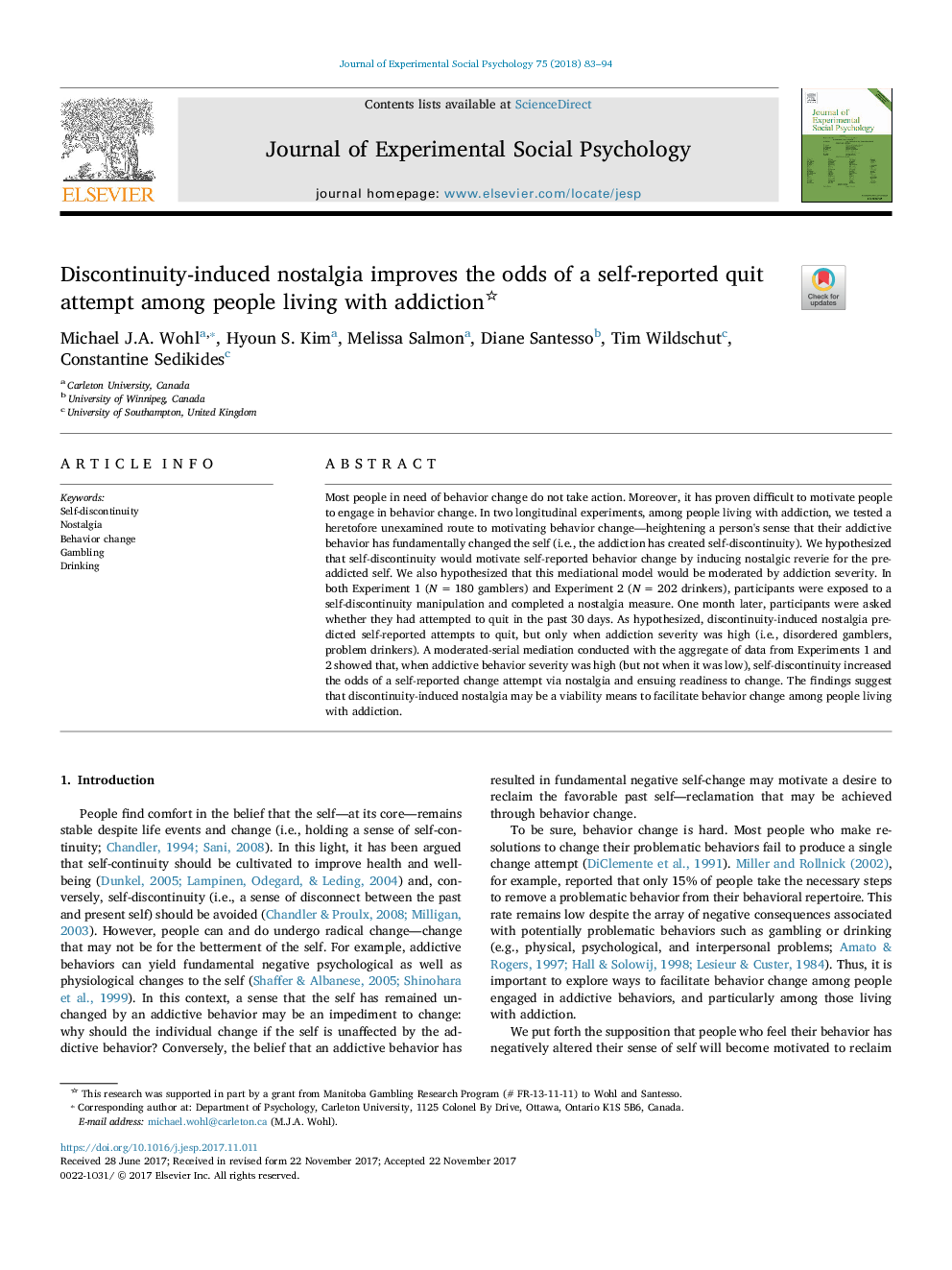ترجمه فارسی عنوان مقاله
نوستالژی ناشی از انزوای ناشی از شکست تلاش خودکارآمد در میان افراد مبتلا به اعتیاد
عنوان انگلیسی
Discontinuity-induced nostalgia improves the odds of a self-reported quit attempt among people living with addiction
| کد مقاله | سال انتشار | تعداد صفحات مقاله انگلیسی |
|---|---|---|
| 135900 | 2018 | 12 صفحه PDF |
منبع

Publisher : Elsevier - Science Direct (الزویر - ساینس دایرکت)
Journal : Journal of Experimental Social Psychology, Volume 75, March 2018, Pages 83-94
ترجمه کلمات کلیدی
خود انسجام، نوستالژی، تغییر رفتار، قمار، نوشیدن،
کلمات کلیدی انگلیسی
Self-discontinuity; Nostalgia; Behavior change; Gambling; Drinking;

